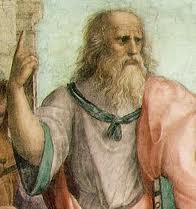
Exhibit A: Suppose one is studying Plato’s philosophy and encounters this question: Are the Forms to be taken as metaphysical realities or as rhetorical devices?
One notes that for years scholars have informally discussed the issue. A formal debate is then proposed. Immediately, one observes this among some Platonists:
1.This should not be debated! Plato said what he said and Speucippus, who took over the Academy after Plato’s death, clarified the correct position. No more needs to be said!
2. Those who take Aristotle’s position are evil. You should not talk with them. They’re no better than those who deny Persian atrocities!

Exhibit B: Suppose one is studying Christian theology and encounters this question: Does Jesus’ preaching unconditional forgiveness extend to God Himself, implying that everyone will go to Heaven?
One notes that for years scholars have discussed the issue. A formal debate is proposed, and right away one sees this among some Christians:
1. This shouldn’t be debated! Jesus said what he said and St. Augustine clarified the true position. No more needs to be said!
2. Those who take Aquinas’s position are wicked. Do not talk with them. They’re have sold out to Satan!
Exhibits C, D, and E: Suppose one is studying Marxism, Islam, or Postmodernism …
The lesson is that human psychology has many constants. Every intellectual movement in history — no matter how officially it is committed to rationality — has those within its ranks who react this way.
That implies that healthy thinking is both a matter of methods and character, i.e., that sustaining healthy thinking requires much training and ongoing self-vigilance.
Related: John Stuart Mill’s classic on the social conditions of freedom of thought, in the Philosophers Explained series.
I think that this is a gross simplification. On one hand, there are ideas that an educated man can use as a weapon; on the other hand, one can know the man’s intention by his actions. The obvious example here is a demagogic politician known to be corrupt. Listening to this hypothetical man is like confronting Sirens of the type that Orfeo confronted.